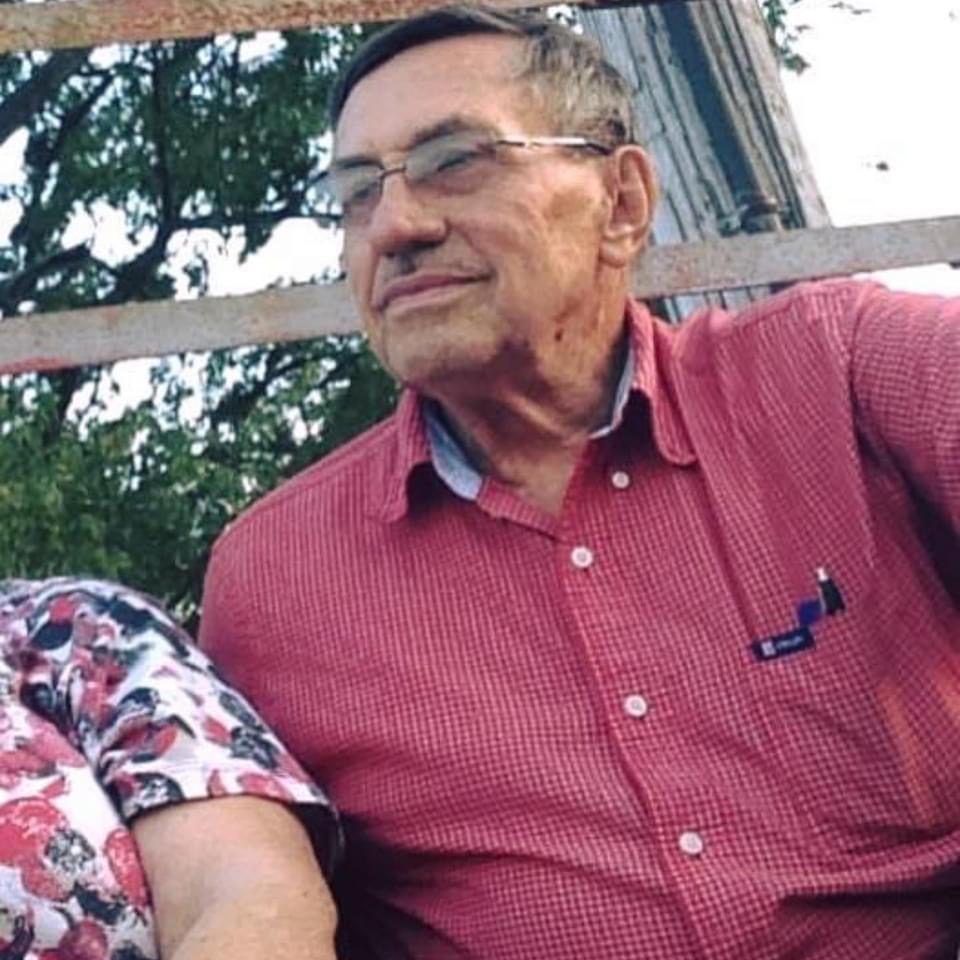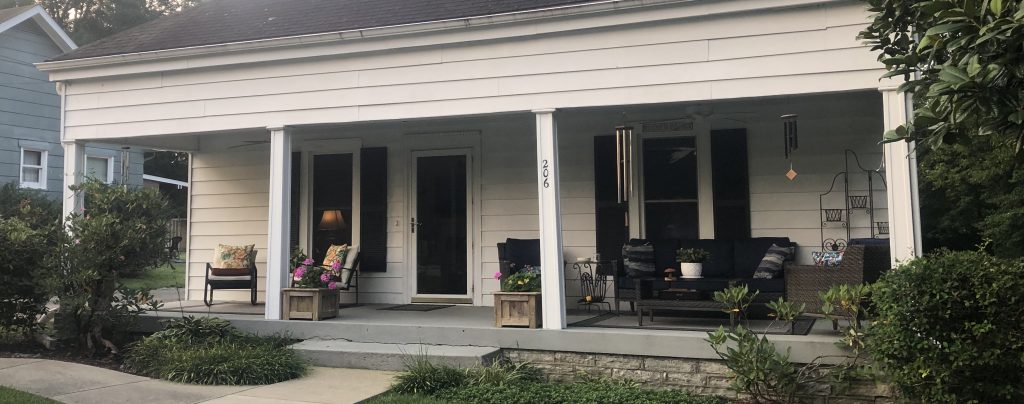
Lovell Richardson
Lovell Richardson, age 86, of Louisville, formerly of Hardyville, passed away
Thursday, August 4, 2022. He was a native of Hart County. He was a
member of the Okolona Church Of Christ. He retired after 42 years from
Ford Motor Company in Louisville, Ky. He so loved his wife and his girls; was
proud of his grandchildren and enjoyed his great-grands! He loved a tractor
pull and talking old tractors, cars, and UK basketball.
He is preceded in death by his wife of 62 years, Frances Walton Craddock
Richardson; his parents, Henry and Mary Richardson; one sister, Joyce
Pennington; two brothers-in-law, Jimmie Pennington and John Taylor.
He is survived by three children, Mary Suzanne Lehring (Doug) of Bowling
Green, Anita Carole Fuqua (Ron) of Louisville, and Leigh Ellen Vize (Patrick)
of Louisville; eight grandchildren, Erika Donahue (Chris), Jenna Malcolm
(Zac), Kent Lehring (Faith), Jacob Fuqua (Katie), Micah Rogers (Jonathan)
Hayley Palmer (CT), Trey Vize, Jackson Vize; five great-grandchildren,
Kyleigh and Kollyns Donahue, Barren and Harlow Malcolm, and Landen
Palmer; along with two more great-grandchildren due later this year, Avery
Lehring (due in October) and Henry Rogers (due in December); two
brothers-in-law, Bill Craddock (Mary Ellen) and Barry Craddock (Cathy);
and sister-in-law, Carole Faye Taylor.
We attended the funeral of our dearly loved good friend lovell on Tuesday. It was a beautiful tribute to a good man. He and his wife Frances along with Bob and Carla Dadisman were our traveling buddies and fellow Christians for many years.
We visited to say good bye at his home on the previous Friday. He was blessed in his final days to be at home and surrounded by family.
Innocence
We come to God not by doing it right, but by doing it wrong. And yet the great forgiveness is to forgive ourselves for doing it wrong. That’s probably the hardest forgiveness of all: that I’m not perfect, that I’m not unwounded, I’m not innocent. “One always learns one’s mystery at the price of one’s innocence.” If I want to maintain an image of myself as innocent, superior, righteous, or saved, I can only do that at the cost of truth. I have to reject the mysterious side, the shadow side, the broken side, the unconscious side of almost everything.
Richard Rohr
God knows me
This is a God who knows my humanity inside and out. God has counted every hair on my head (Matthew 10:30) and bottled up every tear I have shed (Psalm 56:8). Not simply because the Word formed us (Genesis 1:27), knit us together in our mothers’ wombs (Psalm 139:13), was there from the very beginning . . . but because God wore our skin.
Kare Bowler
State of religion in America
Reports of religion’s decline in America have been exaggerated. You’ve heard the story: Churchgoers are dwindling in number while “Nones”—those who tell pollsters they have no religious affiliation—are multiplying as people abandon their faith and join the ranks of atheists and agnostics. Headlines declare that the U.S. is secularizing along the lines of Europe. From Britain’s Daily Mail in 2013: “Religion could disappear by 2041 because people will have replaced God with possessions, claims leading psychologist.”
These conclusions are based on analyses that are so flawed as to be close to worthless. In a new study with our colleagues Matt Bradshawand Rodney Stark, we seek to set the record straight.
Data from five recent U.S. population surveys point to the vibrancy, ubiquity and growth of religion in the U.S. Americans are becoming more religious, and religious institutions are thriving. Consistent with some previous studies but contrary to widely held assumptions, many people who report no religious affiliation—and even many self-identified atheists and agnostics—exhibit substantial levels of religious practice and belief.
The religious landscape in the U.S. is changing but not in the ways that draw headlines. Hundreds of new denominations have quietly appeared, as have thousands of church plants (new congregations) and numerous non-Christian religious imports. These more than make up for losses from mainline Protestant denominations, which are indeed in free fall and have been for decades. But the decline of established institutions is easier to track than the formation and growth of new ones.
Religion is constantly evolving, but it isn’t in decline in the U.S. More Americans attend and support more religious congregations than ever before. Social scientists can’t count them unless they know where to look.
WSJ https://www.wsj.com/articles/religion-is-dying-dont-believe-it-nones-others-surveys-faith-institutions-atheists-agnostics-practice-minority-11659017037
More than half of Americans between ages 16 and 74 read below the sixth-grade level. Video, however, requires only eyes on screens. But … passive media cannot communicate a civilization defined by ideas. Our creedal nation, Stirewalt says, “requires written words and a common culture in which to understand them.”
Take up your cross
Then he said to them all: “Whoever wants to be my disciple must deny themselves and take up their cross daily and follow me. For whoever wants to save their life will lose it, but whoever loses their life for me will save it. What good is it for someone to gain the whole world, and yet lose or forfeit their very self? Whoever is ashamed of me and my words, the Son of Man will be ashamed of them when he comes in his glory and in the glory of the Father and of the holy angels.“Truly I tell you, some who are standing here will not taste death before they see the kingdom of God.”
I asked the class this question: “What would have this sounded like–this call to ‘take up you cross and follow me’–to the people standing there that day listening to Jesus?”
We’ve so moralized this text that I don’t think we appreciate what Jesus was asking. Crosses littered the landscape. People carrying crosses on the way to crucifixion were driven through city streets. The roads leading into cities were lined with bodies hanging on crosses.
The cross was a tool of Imperial terror and control. Its shadow of fear fell over every aspect of colonial life in the outposts of the Roman Empire. Crucifixion was was a bully demanding obedience and compliance.
And in the face of that threat and terror Jesus says, “take up your cross and follow me.” It was a call to radical fearlessness for a people living under the shadow of Imperial torture.
And yet, the day Jesus said these words no one knew about Easter Sunday. Without the resurrection the fearless call to “take up your cross and follow me” would have sounded suicidal. But with Jesus raised from the the dead the Imperial threat had lost its grip upon the political imagination of Jesus’ followers. They had been emancipated from fear. Just as Jesus had been in the face of Pilate’s threats. And the outcome of this liberation was twofold. First, no threat of violence could sway or deter the followers of Jesus. They had became fearless. They now existed outside the bounds of Imperial control. Without fear they had become unmanageable. Second, they had joy. In the face of beatings, torture and imprisonment the followers of Jesus would sing.
Richard Beck
celebrity
…is “social power without proximity.” … there’s a thinness of not being really known, constantly chased by adoring persons who think they know the person and want to know more, in celebrity.
Evangelicals have aped culture in its celebrity culture, celebrities who are produced by “visual appeal, slick marketing, and personal branding.” Celebrity then is a product formed intentionally on the basis of the tools that make someone into a celebrity. Branding is at work in celebrity-dom, branding that apes what happens with the genuinely famous.
Evangelicals have aped culture in its celebrity culture, celebrities who are produced by “visual appeal, slick marketing, and personal branding.” Celebrity then is a product formed intentionally on the basis of the tools that make someone into a celebrity. Branding is at work in celebrity-dom, branding that apes what happens with the genuinely famous.
Am I being seen?, is one of the celebrity’s preoccupations. Instead of simply doing the work and not being seen, the celebrity wants to be seen (as) doing the work.
Scoot McKnight/ Katelyn Beaty

View from the front porch
post from the past
One of the most enjoyable aspects of our current home is the front porch. It is where I spend as much time as reasonable, weather permitting. It is my thin place.
Thin places are places of energy. A place where the veil between this world and the eternal world is thin. A thin place is where one can walk in two worlds – the worlds are fused together, knitted loosely where the differences can be discerned or tightly where the two worlds become one.
It is a venue that encourages reading, reflection, relaxation and observation. Opportunities for interaction and engagement with neighbors and others abound.
Coincidental to our location, numerous people walk down our street just a few feet from the porch. Over the years, it has become my habit to greet everyone or at least attempt to do so. Those encounters have produced varying degrees of relationship, ranging from casual greetings to extended conversations and some friendships. The demographic of those who pass by … age, gender, race, ethnicity, socio-economic and religion is amazingly varied.
Additionally, our porch provides a wide view of our neighborhood. The coming and going, the routines and rhythms, traumas and joys are readily visible and, I might add, audible. As a result, I have a familiarity with my neighborhood that would not otherwise be possible.
Beyond pedestrian traffic and neighborhood activity, there is also vehicular traffic. In recent years street patterns changed resulting in a significant increase in traffic. The demographic of vehicles is as broad as the people who walk by. Cars, trucks, vans, bicycles, strollers, skateboards, segways and handicap scooters. As with the neighborhood, observation of the vehicle traffic provides insight into the realities of people’s lives. (I would say that my ability/desire to develop relationships with people who drive by has been impeded by their propensity to ignore speed limits.) ? The varied conditions of vehicles and their owners dramatically illustrates the existence of the increasing income gap in today’s society. From the vantage point of my porch I am able to see a microcosm of society in our community.
Over the years, I have come to realize how important the front porch is to my spiritual health. I suspect, in the absence of the thin place of my front porch, my spiritual transformation would be significantly different, and not for the better.
A front porch is not the answer, but it is a perpetual reminder of the reality of the world in which I live and the pressing need for hope and redemption.
Front porches provide questions. Questions so profound and perplexing, that I am humbled and forced to abandon self-sufficiency for submission.
STILL ON THE JOURNEY
Wow! Yet another great posting- from start to finish.